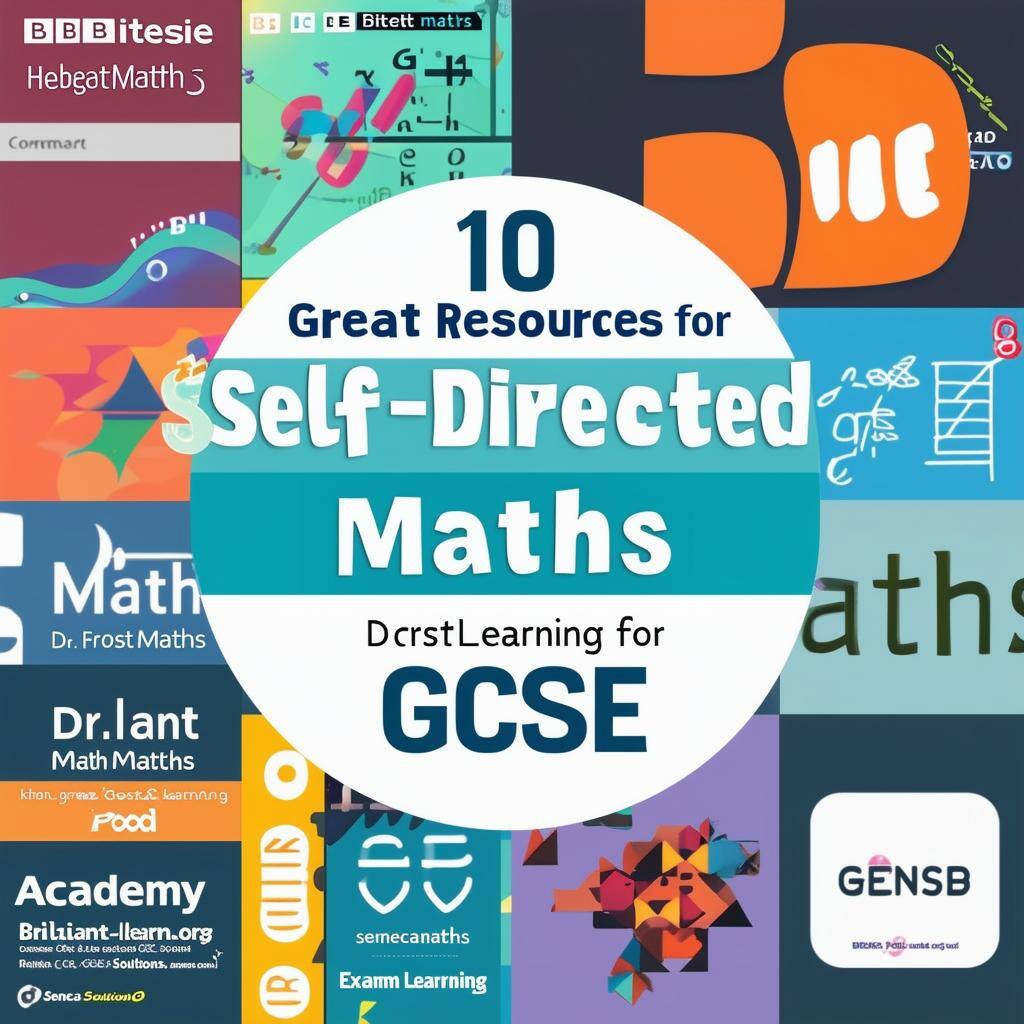Remembering 'Stuff' for GCSEs
42 is the answer to universe, at least according to Douglas Adams & The Hitch-hikers Guide to the Galaxy. It’s also the answer to 6 x 7, which, despite over twenty years of maths teaching I struggle to remember or rapidly recall.
Now I regard myself as reasonably intelligent (I teach GCSE maths and use numbers every day) but 42 remained my nemesis right up until I admitted we weren’t friends and looked for other things to hang my answer on. I found other ways to check myself such as 3 x 7 = 21 & double my answer (because double 3 is 6). Or 7 x 7 is 49, so just take away the extra lot of seven that I added.
If you’re facing exams this year you may well be facing similar memory puzzles. If that’s you, read on – I have more tricks up my sleeve to support you.
Why remember
Exams are usually timed so anything you can do to shorten the time it takes to recall gives you more time for the trickier stuff (like remembering how to multiply fractions for example). In English or History, remembering quotes or dates will help you show the understanding the examiners are looking for.
Much of your GCSE journey is jumping through hoops simply to show your learning to examiners and not particularly useful for life. There might be one child in your year group who finds ‘S equals UT plus half AT squared’ is the most important thing they learned in school but for most of us we’re just learning for the exam. Whether that’s right or wrong it’s something we have to suck up if we want the grade.
How to remember
Marketers, Tiktokers etc know that the more they are in front of you, the more you’ll remember them. They even have a rule about it - the Rule of Seven. It goes something like you have to see a brand 7 times before you’ll consider buying. Other research shows if you’ve seen a brand 30 times you’ll remember them forever. This reminds me of an RE lesson on symbolism I once taught to Year Ones. Not one child knew a cross or a crescent moon but everyone knew McDonald’s and Cadburys - brands were regularly seen by them, important to them and offered a reward for remembering.
Putting my teaching geek hat on, this theory also plays out in Ebbinghaus’ Forgetting Curve, a theory that demonstrates how rapidly we lose our memories of new information if we don’t consciously return to it. You’ll see this principle in action behind a lot of your teachers’ asks: chanting quotes, Times Tables Rock Stars & those super-dull phonics flash card sessions.
There’s lots of ways you can put these ideas into play. Try post-it’s around the house, flashcards, chanting daily, 5-minute daily games, involving family. You can even try singing what you want to remember and adding actions (ask your parents to sing Agadoo lyrics for proof our brains can remember even the most ridiculous things if we sing it enough & add actions).
Knowing what kind of learner you are kind of went out of fashion a few years ago, but think about whether you learn best by hearing, visually or kinaesthetically. Most of us remember in a combination of all three, but I know for me if I write things down there’s a higher chance of me remembering, even if I never see it again. That’s kinaesthetic.
What to remember
Hone down on important stuff & know why you’re learning it. You’ve got a lot to remember so prune out the unnecessary. For example, I’ve walked round remembering “Oh Eric you’re squiffy,” for almost 40 years with zero understanding of its importance until I googled it for this blog! I thought it was just a funny line from An Inspector Calls but I might have got some marks for using it if I’d known it’s importance.
Build around the knowledge you need to remember. Think of building a Lego tower out of oners. At some point if you keep stacking oners on oners (or single facts on single facts) that tower is going to tumble. If you strengthen the structure with other, stronger, linked bricks though…
This is where teachers & tutors can help. Those who’ve been teaching for years know the mark schemes and what gets the marks. Make notes of the knowledge they’re telling you are important to remember and build a network of facts.
When to remember
GCSEs are one time when I see students putting enormous pressure on themselves. It seems everyone has expectations of you, you’re ranked with peers and it feels like your whole future hangs on a few pass marks. In reality, it’s curiosity, drive and consistency that will get you places, not necessarily grades, but it’s hard to understand this perspective when you’re facing exams. Not everything in life is learned in school. Here’s a few school drop outs that went on to find success their own way:
Thomas Edison (inventor of the light bulb!)
Albert Einstein (self-taught science guru)
Deborah Meadon (Dragons’ Den)
Simon Cowell (X-Factor, Britain’s Got Talent)
Richard Branson (Virgin boss)
Carrying stress about is one sure fire way to make you worse at remembering. Stress puts us in fight, flight or freeze mode and this is when our amygdala takes over. The amygdala is sometimes known as our dinosaur brain and it does its job well. It recognises stress and helps our body react quickly, helping us run away from danger, prepare to fight or stay very, very still. However, our amygdala is pretty terrible at remembering. Surrounding the amygdala is the limbic system which is in charge of controlling emotions. Lots of hormones are doing work here helping us to know when we’re hungry or tired and helping us regulate our body systems. With so many new teenage hormones pumping, our limbic systems are busy doing their own jobs of learning to control these new arrivals and again, this part of the brain isn’t great at remembering GCSE facts.
We want our memories to head to the hippocampus and cerebellum, or outer parts of our brain and facts are going to do that best when we’re in a calm and steady state. That calm, steady state is going to be different time for each of us, but choosing a regular slot when you’re at your best helps to make it a routine. Which takes me to…
Where to remember
If you’re anything like me (and particularly if you’re neurodiverse) choosing where you revise is going to be as important as everything else I’ve said. Remember we’re aiming for that best, calm state of mind. If your shirt collar is irritating, your little sister is talking Barbie, the TV is on, someone’s cooking smelly sprouts then admit you’re going to get distracted and find a better situation where you can be calm. If home isn’t ideal try quiet spaces in school or the local library.
An ideal set up (for me) is a quiet, comfortable space where I can reach all the things I need: books, tablet, laptop, pens, fiddle toys. Random fact, I do my best learning when my feet are warm.
Final word
January is the time when things seem to ramp up. You might be facing more mocks, revision starts for real, parents start asking if you’re revising. It can feel like there’s a mountain in front of you.
Let me tell you about the Sky cycling team and how, after years of being mediocre, they became world beating, medal hauling champions: Marginal Gains. They didn’t try to be champions overnight. They looked daily for the small changes they could make: a lighter saddle, one more minute on their routine, even down to carrying their favourite pillow around the world. They set a goal of improving the tiny things consistently and eventually they added up to enough to make them world leaders.
This evolved into the 1% rule, which goes something like if you improve by 1% everyday then in a year, you’ll be 37 times better. Now obviously, we don’t have a year, but there’s still plenty of time for improvement by consistently putting into place the things I’ve written about in this blog.
Choose an amount of time that works for you (and don’t compare yourself to your classmates, do you) and stick to it. Don’t choose 6pm on Wednesdays if you know that’s the time everyone has the weekly kick around. Prep your space so you don’t have to do it every time and it’s there when you need it. Ask for help if you’re struggling.
________________________
Here’s some useless things I remembered for exams and have never used in life but still know almost 40 years later. Can you place them?
- E, es, e, ons, ez, ent
- F=MA F=PA
- Wan a man so drinketh of the white and reed, of his throat he make a privy, in cursed superfluity
- 0, 1, 10, 11, 101, 111
- Moi, j’ai soif. Je voudrais une Orangina.
- Out damn spot. Out I say.
- Landscape stability is a function of spatial and temporal distributions of stresses and strains within the landscape environment. Schum & Lichty 1969.
- Agadoo, do, do, push pineapple, shake the tree… oh no, not that.



